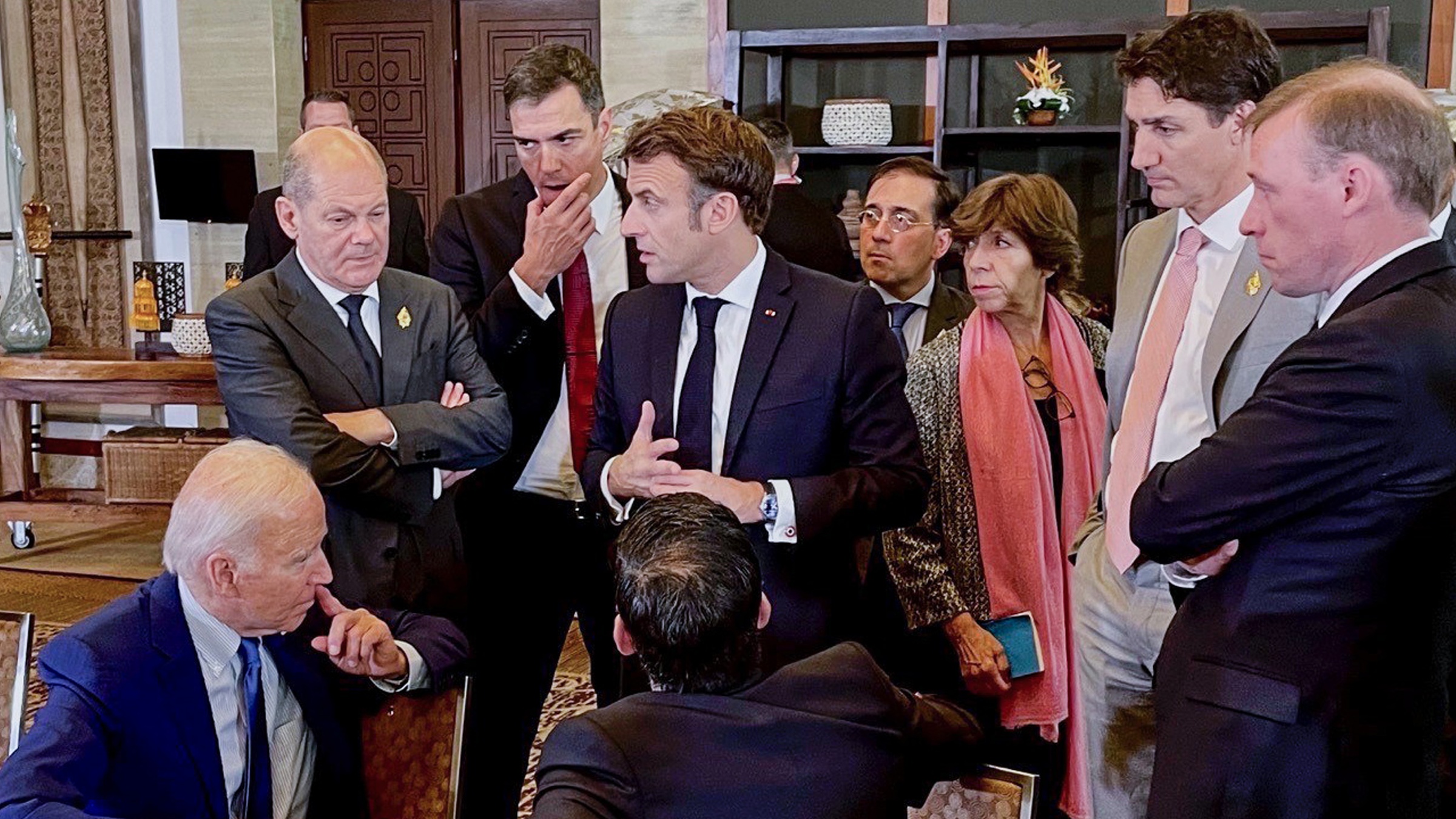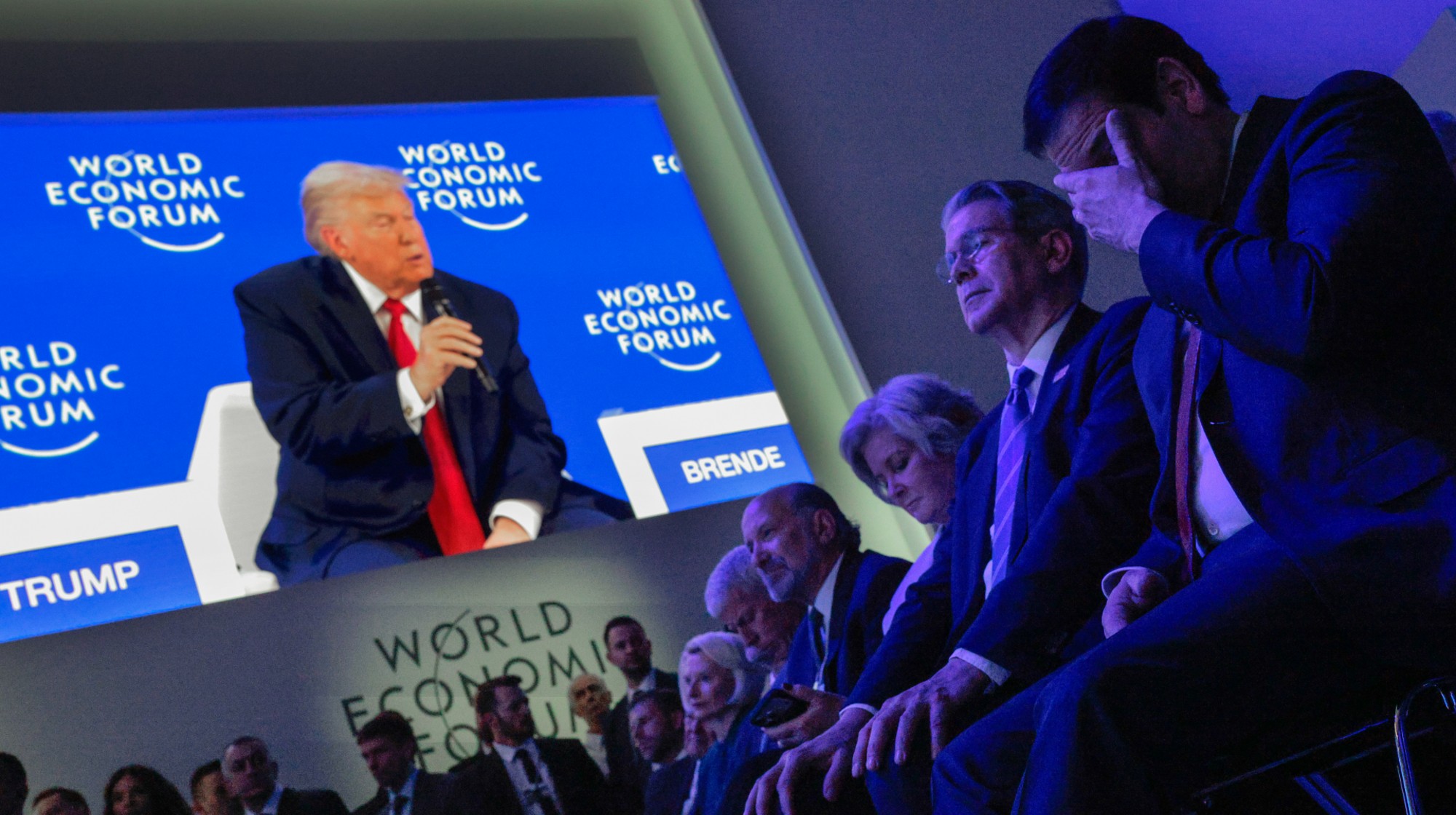Will Poland missile change the course of Ukraine war?
Deadly missile strike on Polish village stokes fears of a Nato escalation

A free daily email with the biggest news stories of the day – and the best features from TheWeek.com
You are now subscribed
Your newsletter sign-up was successful
An explosion that killed two people in Poland is likely to have been caused by a Ukrainian air defence missile fired in response to a Russian attack, according to Nato.
The missile strike last night on the village of Przewodow, about four miles west of the Ukrainian border, prompted fears of an escalation in the conflict. Russia denied responsibility, saying it had not targeted any Ukrainian territory near the border with Poland.
The strike marked “the first time a Nato country has been directly hit during the almost nine-month conflict”, said CNN.
The Week
Escape your echo chamber. Get the facts behind the news, plus analysis from multiple perspectives.

Sign up for The Week's Free Newsletters
From our morning news briefing to a weekly Good News Newsletter, get the best of The Week delivered directly to your inbox.
From our morning news briefing to a weekly Good News Newsletter, get the best of The Week delivered directly to your inbox.
Nato’s Secretary General Jens Stoltenberg said today that an investigation was under way. “We have no indication that this was the result of a deliberate attack and we have no indication that Russia is preparing offensive military actions against Nato,” he said. Preliminary analysis suggested the incident “was likely caused by a Ukrainian air defence missile fired to defend Ukrainian territory against Russian cruise missile attacks”.
“But let me be clear,” added Stoltenberg, “this is not Ukraine’s fault. Russia bears ultimate responsibility as it continues its illegal war against Ukraine.”
What did the papers say?
Poland is to lead an investigation into the strike to determine who fired the missile and from where. The Polish defence ministry described it as “Russian made” – but both Russia and Ukraine have deployed Russian-made munitions throughout the conflict.
“Whatever the outcome of the Polish-led investigation”, the incident has “reinforced longstanding concerns related to the risk of battlefield miscalculation triggering Nato-Russian conflict”, said CNN.
A free daily email with the biggest news stories of the day – and the best features from TheWeek.com
That is because Poland has been a member of the Nato alliance since 1996. If the strike was established to be a deliberate, hostile attack on the Ukraine-bordering nation, it could trigger a military response from Nato under Article 5 of the alliance’s treaty, which considers an attack on one member an attack on all.
But two Nato officials told the Financial Times that the situation had provoked concern but not panic within the alliance. “It’s often said that an attack on a Nato ally could trigger an Article 5 response, but Nato officials really stress that Article 5 is a conversation, not a machine,” Patrick Tucker, an editor at Defense One, told The Telegraph. “An Article 5 Response can take all sorts of forms. It’s not a WWIII button.”
Even if the missile was determined to have been fired by Russia, it seems likely it would fall short of the “armed attack” necessary to trigger Article 5.
“‘Deliberate armed attack’ is a real thing,” said William Alberque, director of strategy, technology and arms control for International Institute for Strategic Studies. “Two misfired cruise or ballistic missiles ain’t it.”
What next?
According to Polish prime minister Mateusz Morawiecki, Poland had been considering whether to launch consultations with Nato allies under Article 4 of its treaty. According to the treaty, Article 4 is the formal mechanism under which Nato countries “consult together whenever, in the opinion of any of them, the territorial integrity, political independence or security of any of the Parties is threatened.”
However, Stoltenberg has since confirmed that there has been no call for an Article 4 meeting.
Whatever the results of the investigation into the missile’s origin, the incident “underscores that while containing the war to Ukrainian land is a policy priority for most of the Nato alliance, it is a national security imperative for those on the country’s western border, for whom spillover is inseparable from direct involvement”, said the FT’s Henry Foy.
The incident certainly “raised tensions at a summit in Bali of leaders of the Group of 20 nations, a gathering focused largely on the fallout from Russia’s war on Ukraine”, said The Washington Post.
Michal Baranowski, director of the German Marshall Fund’s Warsaw office, predicted the incident would “galvanise” Ukraine’s allies, said the paper.
“The question now is, how do we, with the Ukrainians, stop Russian air and missile attacks throughout Ukraine and if they spill over to Nato territory?” he said. “The answer will be much more robust air and missile support.”
Sorcha Bradley is a writer at The Week and a regular on “The Week Unwrapped” podcast. She worked at The Week magazine for a year and a half before taking up her current role with the digital team, where she mostly covers UK current affairs and politics. Before joining The Week, Sorcha worked at slow-news start-up Tortoise Media. She has also written for Sky News, The Sunday Times, the London Evening Standard and Grazia magazine, among other publications. She has a master’s in newspaper journalism from City, University of London, where she specialised in political journalism.
-
 The ‘ravenous’ demand for Cornish minerals
The ‘ravenous’ demand for Cornish mineralsUnder the Radar Growing need for critical minerals to power tech has intensified ‘appetite’ for lithium, which could be a ‘huge boon’ for local economy
-
 Why are election experts taking Trump’s midterm threats seriously?
Why are election experts taking Trump’s midterm threats seriously?IN THE SPOTLIGHT As the president muses about polling place deployments and a centralized electoral system aimed at one-party control, lawmakers are taking this administration at its word
-
 ‘Restaurateurs have become millionaires’
‘Restaurateurs have become millionaires’Instant Opinion Opinion, comment and editorials of the day
-
 Will increasing tensions with Iran boil over into war?
Will increasing tensions with Iran boil over into war?Today’s Big Question President Donald Trump has recently been threatening the country
-
 Putin’s shadow war
Putin’s shadow warFeature The Kremlin is waging a campaign of sabotage and subversion against Ukraine’s allies in the West
-
 Epstein files topple law CEO, roil UK government
Epstein files topple law CEO, roil UK governmentSpeed Read Peter Mandelson, Britain’s former ambassador to the US, is caught up in the scandal
-
 Iran and US prepare to meet after skirmishes
Iran and US prepare to meet after skirmishesSpeed Read The incident comes amid heightened tensions in the Middle East
-
 Israel retrieves final hostage’s body from Gaza
Israel retrieves final hostage’s body from GazaSpeed Read The 24-year-old police officer was killed during the initial Hamas attack
-
 China’s Xi targets top general in growing purge
China’s Xi targets top general in growing purgeSpeed Read Zhang Youxia is being investigated over ‘grave violations’ of the law
-
 Panama and Canada are negotiating over a crucial copper mine
Panama and Canada are negotiating over a crucial copper mineIn the Spotlight Panama is set to make a final decision on the mine this summer
-
 Trump backs off Greenland threats, declares ‘deal’
Trump backs off Greenland threats, declares ‘deal’Speed Read Trump and NATO have ‘formed the framework for a future deal,’ the president claimed